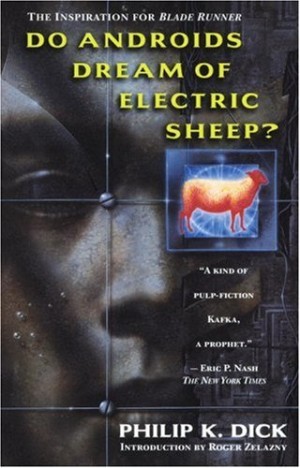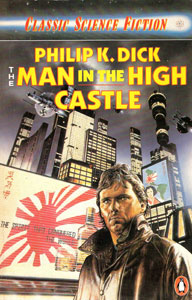Do Androids Dream of Electric Sheep? is probably Philip K. Dick’s most famous work, given that it was turned into one of the most respected science fiction films of all time. I do not hold to the absolutist opinion that the book is always better than the movie, but after one read of the book and many viewings of the movie, I am inclined to say that, in this instance, the book is at least as good and in some respects is better.
Rick Deckard, along with numerous other unfortunate souls, has been left behind on Earth, an unhealthy wasteland from which anyone of means has migrated. He is the number two man assigned to retire rogue androids who try to pass themselves off as human. The androids, however, prefer to remain alive.
Deckard makes a modest living, but when the number one guy is nearly killed by an android, he assumes the responsibility to retire a group of six of them, seeing in the job an opportunity to make some much-needed cash. Insert canned line about things not going as planned. Insert second canned line about the job being more than he bargained for.
As I expected, the clownish dialogue and behavior, unnecessarily detailed descriptions and lengthy back stories injected into scenes immediately after a character’s introduction — the slipshod method by which so many authors introduce and develop their characters — is absent. Instead, we meet people who feel and act real, and we come to know them as we would anyone else: by how they act, what they say, and what is said about them. They move about in an exotic land but act in accordance with their human goals and abilities.
What I found surprising was how good the plot was. There is a satisfying quantity and variety of dramatic interactions, various obstacles to overcome, a sufficiently grand and tense third act… everything an eager reader could hope for. I did not expect a poorly wrought narrative, but given some of the difficulties I found in The Man in the High Castle, I thought that maybe character and setting were Dick’s strengths, not plot. The movie, as good as it is, strikes one as underplotted, and I assumed this was due to a deficiency on the book’s part.











